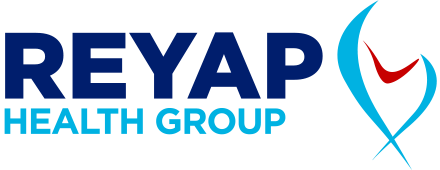The mother and baby friendly hospital policy adopted at Reyap Hospitals for the health of the mother and baby before, during and after the birth aims to provide the psychological support and education that the mother needs, as well as ensuring the health of the mother and the baby.
Our general principles in mother-friendly hospital rules listed as follows
As Reyap Hospital, our main goal is to increase the quality and quantity of our maternal health services, and to ensure that expectant mothers can reach safe and quality delivery services. Our other principles are:
- As Reyap Hospitals, we primarily aim to increase the quality and quantity of our maternal health services, and to ensure that expectant mothers can access safe and quality delivery services.
- To provide a smooth, safe and high quality pregnancy follow-up and labor.
- To provide empowerment, prenatal care and prenatal and postnatal counseling.
- Autonomy
- Compliance with non-harm and emergency referral criteria
- Responsibility
- Mother and baby oriented services
- To provide logistical support and uninterrupted service to all mothers who gave birth
- Respect for privacy
- Monitoring statistics and providing information
- The areas where polyclinic, training and consultancy services are provided comply with the standards.
- Application of evidence-based practices
- Promoting successful breastfeeding
- Taking actions to increase the knowledge and skill capacity of the mother.
Successful Breastfeeding Policy
Our hospitals raise awareness of mothers and expectant mothers in line with the following information.
- The advantages of breast milk are that it has excellent nutritional content and is easily digestible, it is always ready and economical, it is the most natural and fresh food, it is always clean and germ-free, it protects the newborn baby against diseases, it has a positive effect on the baby’s intelligence development and intellectual structure.
- While breastfeeding helps to establish a special bond of love between mother and baby, it also protects the health of mother and baby.
- Breastfeeding should be started within the first half hour after birth and “only breast milk” should be given to the baby for the first 6 months. Breastfeeding should continue for up to 2 years, in addition to starting complementary foods after 6 months.
- Colostrum, the thick, yellowish milk produced by the mother during the first few days after birth, protects the baby from allergies and infections, cleans the intestines, contains growth factors, and is rich in vitamins A and C.
- It is important to keep the mother together with the baby day and night and to support the baby to breastfeed whenever he/she wants, since the mother’s milk production is completely dependent on the mother’s feelings, thoughts and senses.
- We regularly inform all health personnel about our existing written policy regarding breastfeeding and train our personnel at regular intervals.
- A written policy regarding breastfeeding is prepared and presented to all health personnel at regular intervals.
- All health personnel are required to be trained in line with this policy.
- Pregnant women should be informed about the benefits and methods of breastfeeding.
- In the first hour after birth, babies should establish skin-to-skin contact with their mothers, and mothers should be assisted to start breastfeeding.
- Mothers should be informed about how to breastfeed and how they can continue to secrete milk when they are separated from their babies.
- Unless it deemed medically necessary, newborns should not be given food or drink other than breast milk.
- An application should be carried out to ensure that the mother and baby stay together for 24 hours.
- Breastfeeding should be encouraged whenever the baby requests it.
- Breastfed babies should not be given any pacifiers, etc..
- Mothers should be informed about the health institutions and mother support groups that they can apply to, so that they can continue breastfeeding after discharge, solve the problems they may encounter, and have their babies and themselves checked..
- International formula code practices should be adopted and implemented in every field of the institution.
